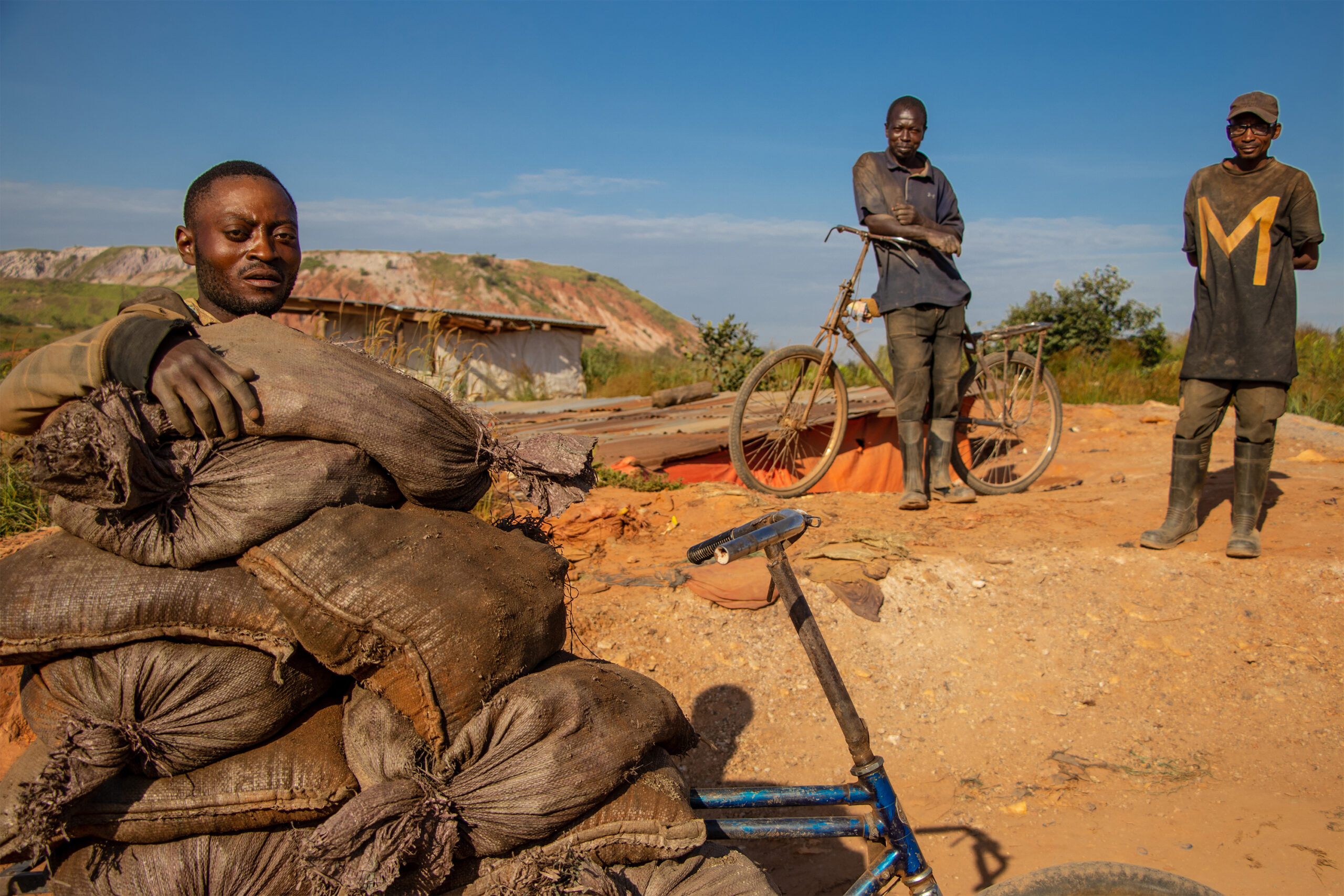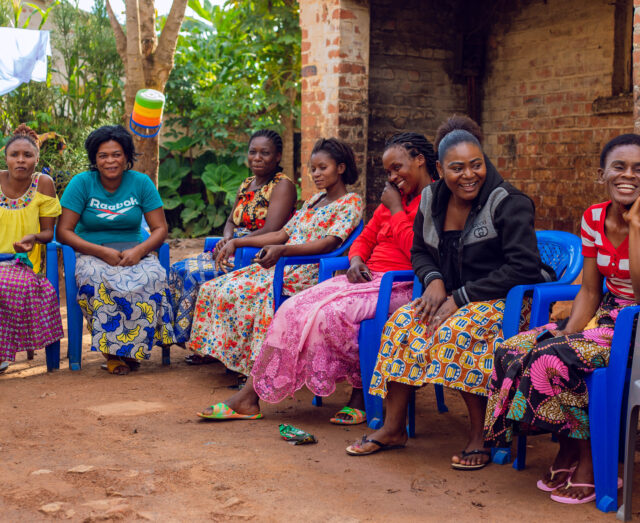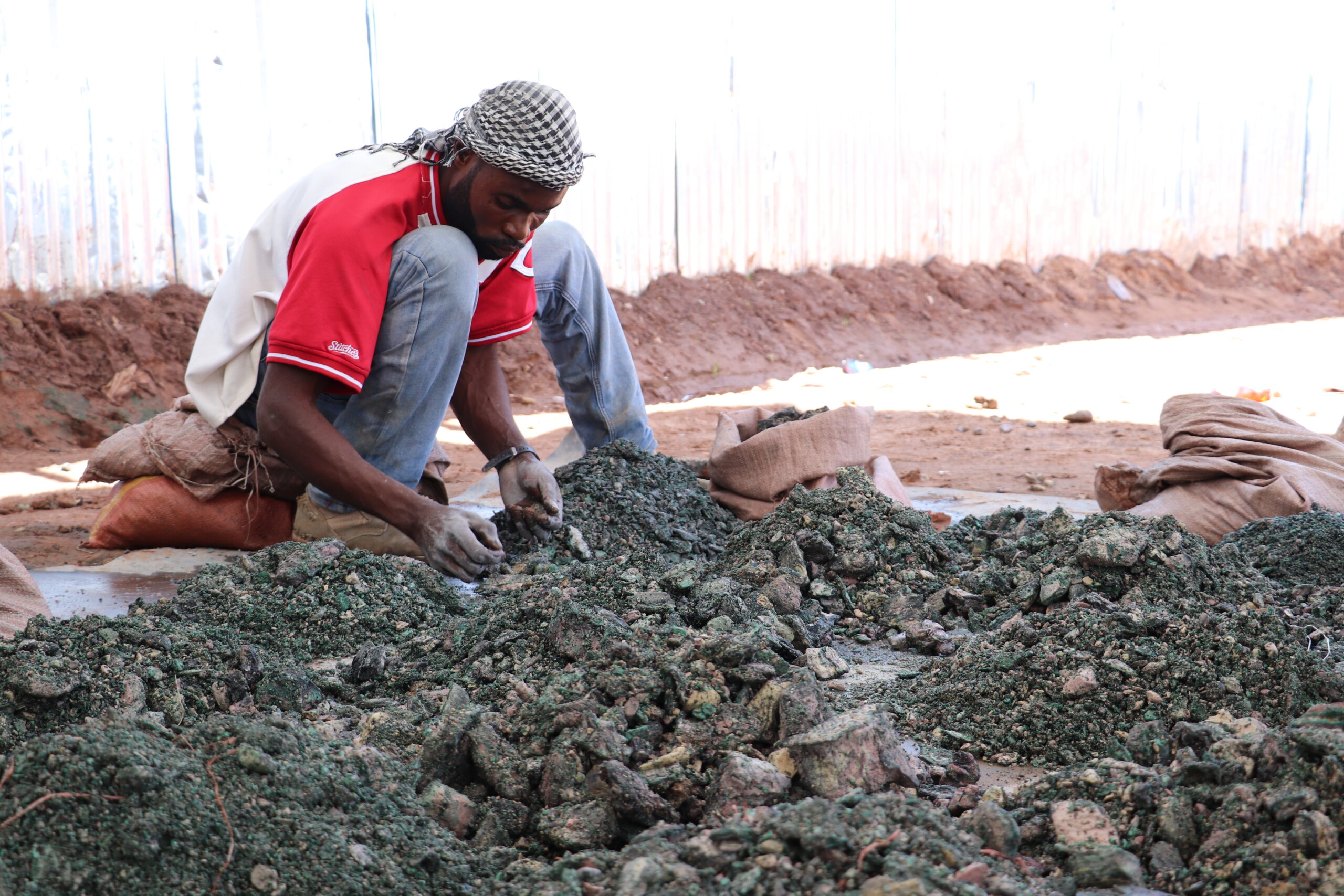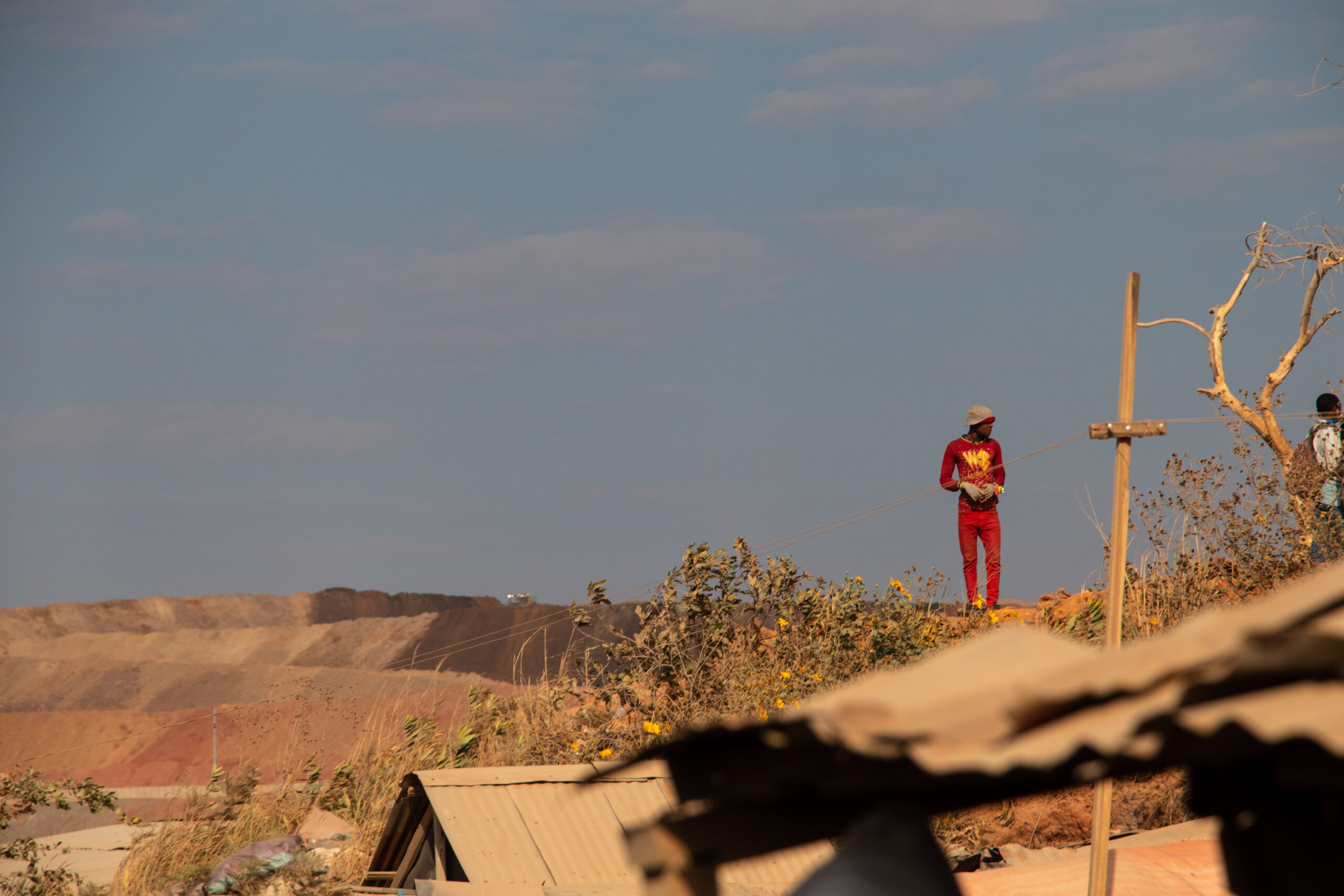Empowering Women in Cobalt Mining
Gloria’s story, as recounted by IMPACT, sheds light on the daunting challenges faced by women in the cobalt-rich region of Lualaba, DR Congo. These women are confronted with an agonizing choice – to confront hunger or turn to cobalt mining – what the downstream refers to as artisanal mining. This dilemma uncovers deep-rooted gender inequalities within artisanal and small-scale mining (ASM). In these communities, women primarily shoulder the responsibility of providing for their families, covering expenses like food, education, and healthcare. Unfortunately, their husbands’ incomes are often unreliable and insufficient.
Adding to the burden, women must also juggle childcare and household duties while navigating a dry, mining-dominant environment where previously green spaces have given way to excavation. The cost of living is soaring, and food prices are high due to imports from foreign countries, making daily survival a relentless challenge.
Why do women turn to cobalt mining?
Cobalt mining in the ASM sector is a lifeline for approximately 150,000 – 200,000 men and women, accounting for 10-15 percent of cobalt production in DR Congo. These figures underscore the significance of ASM for the Lualaba and Haut-Katanga regions. Cobalt mining stands out as the highest paying job in Kolwezi, offering daily cash income without the need for substantial investments or specialized skills. Nevertheless, this industry is full of inequality. Women often find themselves relegated to the lowest-paid roles, prohibited from accessing specific mine sites, or being underpaid for their minerals. Traditional beliefs further compound these challenges, barring women from mining pits due to superstitions that equate female presence with the disappearance of ore, or worse, bad luck due to menstrual cycles.
According to the IMPACT report, the majority of women miners earn between $2.15 and $8.60 USD per day, a far cry from the estimated living wage of $15.78 USD in Kolwezi. For Gloria and many more, the struggle continues.
Artisanal women miners and child labour: the correlation between the two.
Desperation often forces families like Gloria’s to send their children into the mines to augment the household income. The allure of high earnings draws children to these perilous workplaces. For many, this decision isn’t based on preference but on the harsh necessity of survival. Inadequate childcare options for working mothers force them to bring their young children to the mining sites.
Child labour, despite its universal prohibition and recognized harm to children, remains a grim reality for many families. While the number of children working on ASM mine sites has significantly decreased in the past five years, some children still labour due to the unresolved root causes.
The way forward: Empowering women
Addressing child labour cannot rely solely on banning children from mine sites when poverty and hunger persist. To effectively combat child labour, we must boost the incomes of the primary family breadwinners, who are often women. Empowering women in artisanal cobalt mining involves equipping them with the tools and skills to access higher-paying roles within the mines. Support is also essential in securing fair pricing, implementing health and safety measures, and establishing community savings programs. This empowerment offers a solution to breaking the cycle of child labour and paving the way for a brighter future for children and the women in mining communities.
Our approach
The Fair Cobalt Alliance (FCA) has recognized the urgent need to address these issues at their core. The FCA supports the ASM communities in the Kapata neighborhood in Kolwezi through Voluntary Savings and Loans Associations (VSLAs) scheme, implemented through our local partner Alternanatives for Actions (A.F.A). The VSLAs were established to tackle poverty resulting from resource mismanagement and a lack of financial education.
Results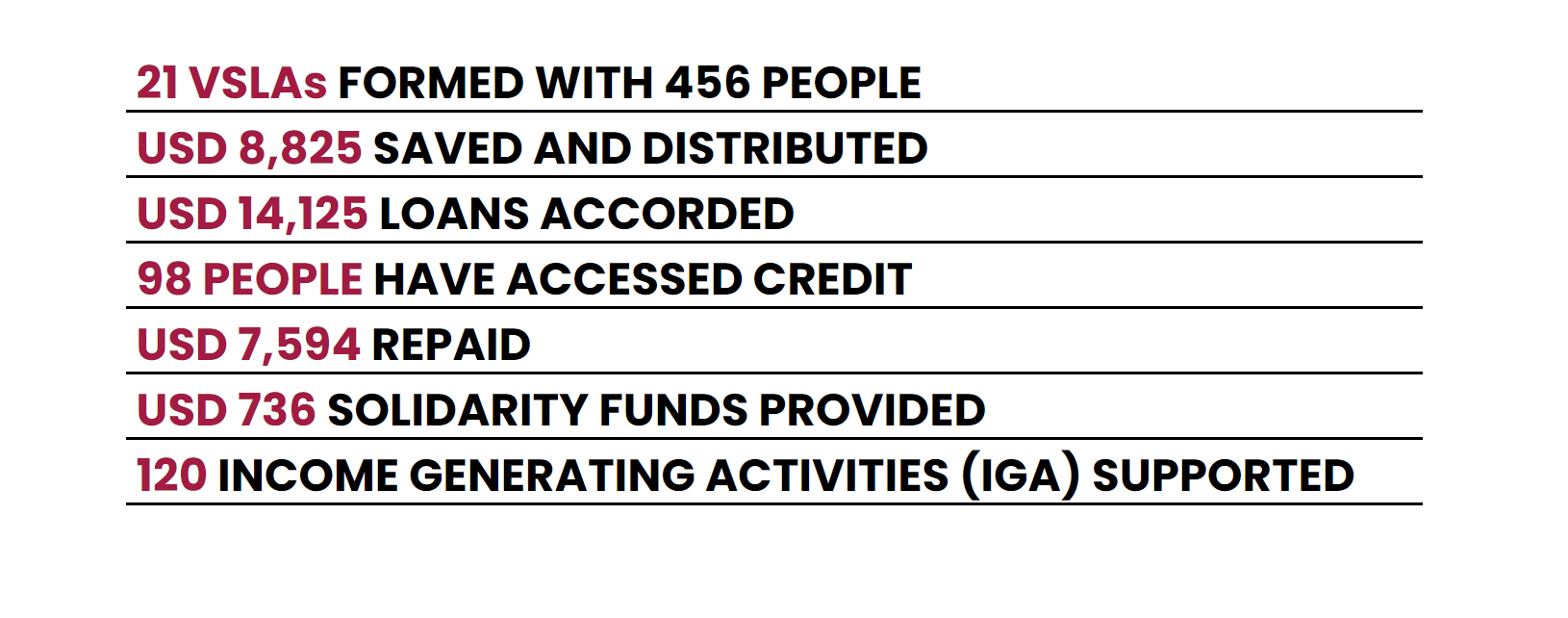
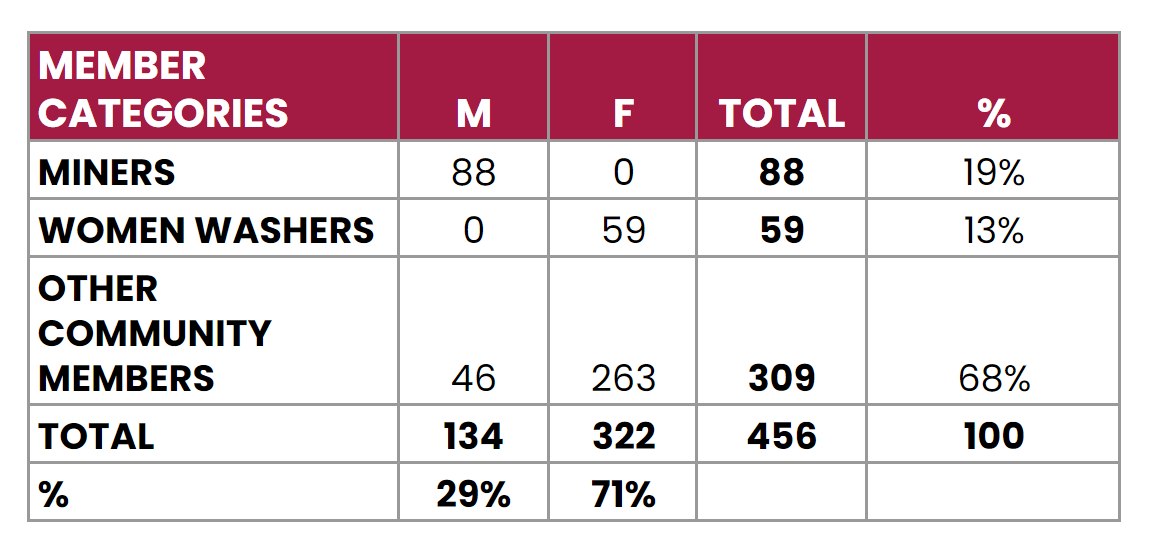
*2023 data
The data clearly shows that a significant proportion of VSLA participants are women working at ASM sites or wives of miners. The primary reasons for obtaining loans are income-generating activities and children’s education. This underscores the crucial role played by VSLAs in the community but more importantly the drive that these women carry. The VSLA project actively assists women in managing their incomes more effectively, enabling them to better provide for their families and access education.
Personal protective equipment (PPE)
Recognizing that women washers play a pivotal role in the VSLAs and that child labour often results from family disjunction, the FCA prioritizes the protection of women’s health. Under this, we have the PPE provision programme to safeguard women from health risks associated with cobalt mining. Washing minerals in water without proper PPE exposes women washers to operational health and safety risks, including skin rashes and infections from exposure to heavy metals in the water.
Collaborating with the women washers and our partner mine site C.M.D.S, the FCA has provided tailored PPE project, facilitating the provision of wader boots to the women at the Kamilombe mine on a daily rental facility to address their safety concerns while washing minerals.
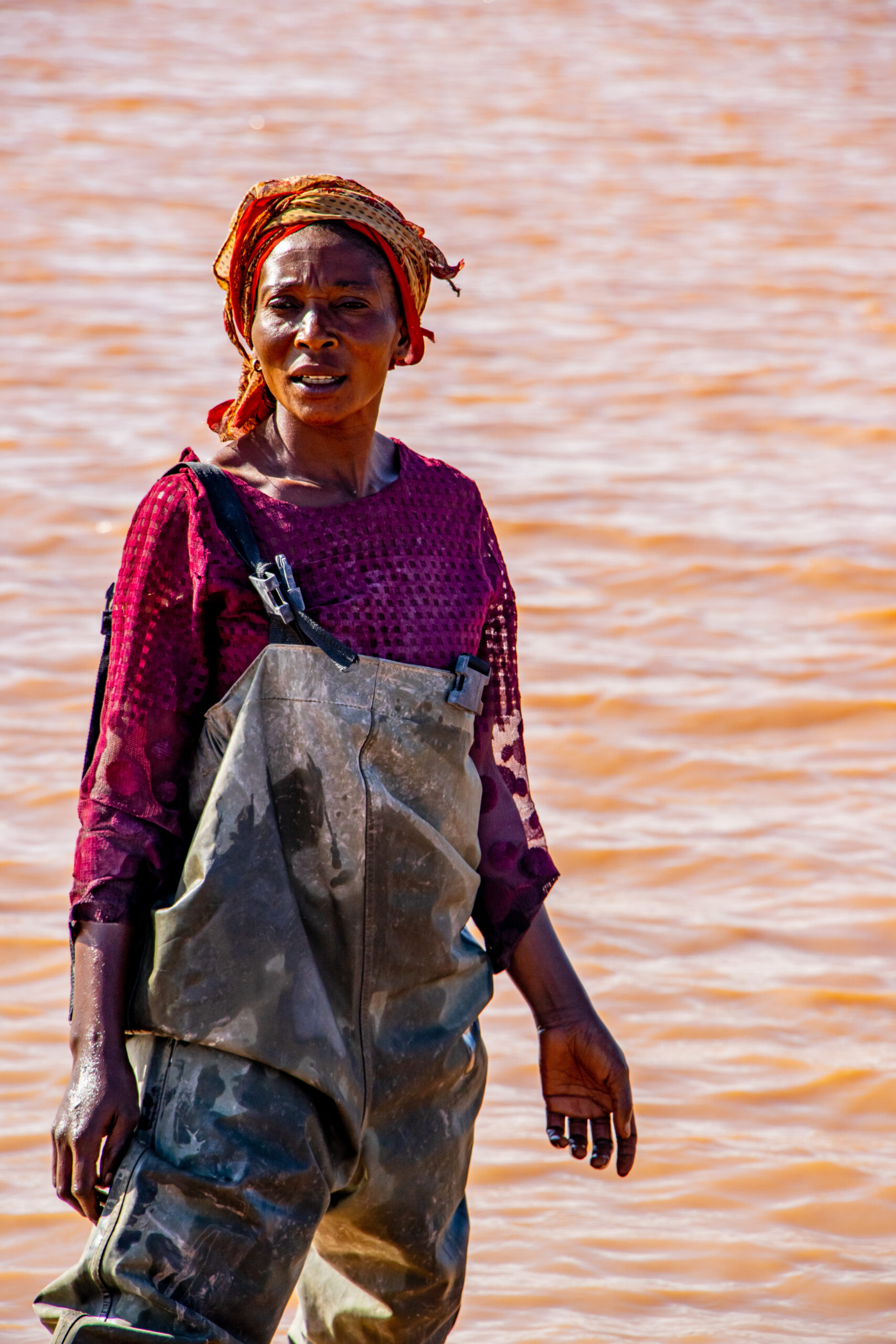
Laveuse wearing her wader boots, in the Kamilombe mine site in Kolwezi, DR Congo
Holistic support: The key to improving the challenges faced by women in ASM
The FCA’s engagement extends beyond charitable efforts; it represents a genuine commitment to enhancing the lives of women in ASM mining communities. Recognizing the challenges they face, the FCA aims to provide lasting solutions. The initiatives enable women in Kolwezi to diversify their income sources through investments, and, most importantly, integrate them as community leaders and decision-makers. Expanding this project to encompass the entire Lualaba and Haut-Katanga region could bring about a comprehensive transformation of the sector.
The gender disparities in cobalt mining are an undeniable reality in Kolwezi, with women bearing the brunt of the burden and children becoming trapped in the cycle of child labour. It is imperative that more organizations colllectively work toward empowering women economically and socially. The surge in cobalt demand has transformed artisanal mining into a lucrative income source for many. However, the benefits of this resource have yet to reach communities in Kolwezi, where essential needs like electricity and clean cooking fuel remain unmet. As the global demand for cobalt continues to soar, it is crucial that this growth translates into improved livelihoods and opportunities for women in mining communities. Gloria’s story and the VSLA data underscore the potential for these women to change the future not only for themselves but for generations to come.

